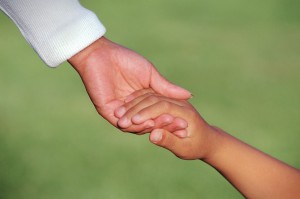 Child care providers often find themselves in a difficult position when global tragedies occur. Children who start arriving the morning after a particularly devastating tragedy, such as the earthquake in Haiti, often have questions that can begin the moment they arrive, especially if the news was just on Mom’s car radio. Certainly their ages play a role in the questions and conversations, but all in all, kids want reassurance especially when it’s something their young minds can’t comprehend. But how do you address a group of children, often of varying ages, when the questions begin? It’s a fine line, especially since parents have definitive ideas on how much their children should be told. One child might know more than others, while another might be lost when the questions begin.
Child care providers often find themselves in a difficult position when global tragedies occur. Children who start arriving the morning after a particularly devastating tragedy, such as the earthquake in Haiti, often have questions that can begin the moment they arrive, especially if the news was just on Mom’s car radio. Certainly their ages play a role in the questions and conversations, but all in all, kids want reassurance especially when it’s something their young minds can’t comprehend. But how do you address a group of children, often of varying ages, when the questions begin? It’s a fine line, especially since parents have definitive ideas on how much their children should be told. One child might know more than others, while another might be lost when the questions begin.
Child care providers routinely have toddlers and pre-kindergarten age children during the day with older school age children coming in the afternoons. This can complicate matters. Still, there are ways to walk that tightrope that allows you to respect each parent’s wishes while also addressing questions and concerns of your young charges.
With younger children, they have no concept of distance; explaining a tragedy that happened in another part of the world or the country, for that matter, means little to them. All they know is what they’ve seen on television or have overheard adults talking about.
Many child psychologists agree that providing simple answers is sufficient for younger children. Instead of focusing so much on the human toll, child care providers can often steer the conversations to another factor of a tragedy; in this case, earthquakes. It can turn into a learning opportunity that steers clear of those topics best left to the parents while also explaining in age-appropriate terms what earthquakes are, how the oceans are affected and even how the birds and fish react. The purpose is to not discount their questions while also remaining in neutral territory.
If you notice any child who might be having a difficult time, you can always take him or her aside for a one on one  chat. Again, you don’t want to navigate those difficult waters that include life and death, but you can ease their minds by telling them help has arrived to help the children and that big airplanes are bringing supplies to everyone to make their days better. Of course, it’s not that simple, but again, your goal is to keep it age-appropriate. At the end of the day, be sure to mention to Mom or Dad the difficulties their little one had.
chat. Again, you don’t want to navigate those difficult waters that include life and death, but you can ease their minds by telling them help has arrived to help the children and that big airplanes are bringing supplies to everyone to make their days better. Of course, it’s not that simple, but again, your goal is to keep it age-appropriate. At the end of the day, be sure to mention to Mom or Dad the difficulties their little one had.
Tragedies are all too often a part of our lives, but with a little tender loving care and by carefully choosing our words, soothing the concerns of the youngest is manageable.



